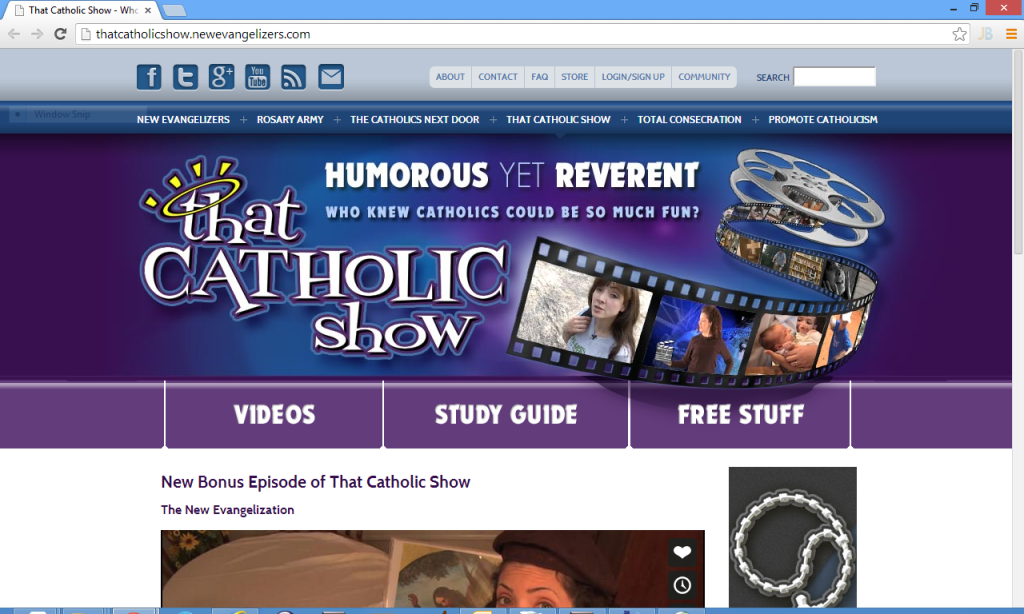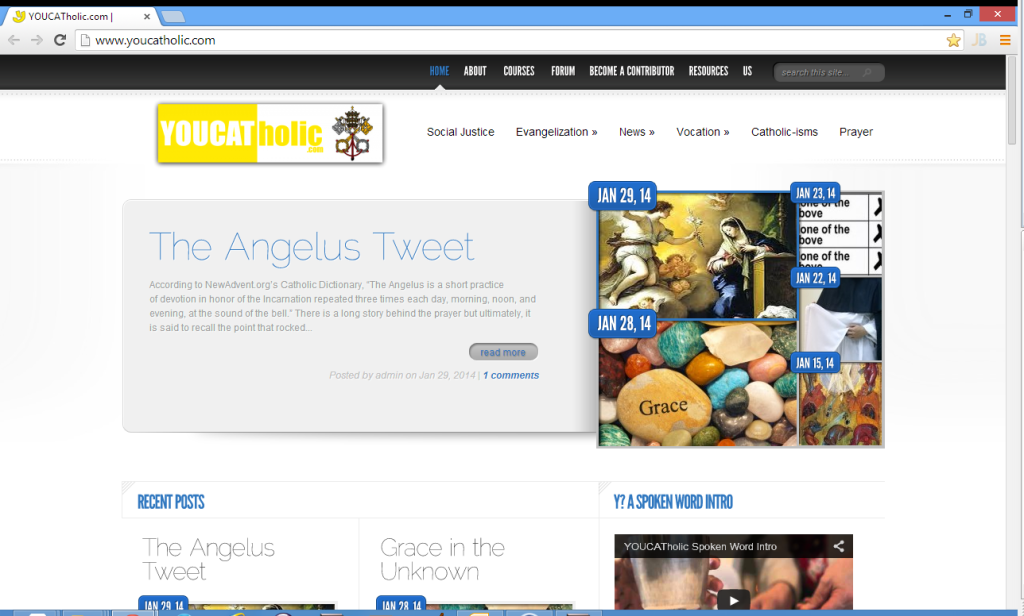Tag: Catechism
Online Catechism
Friday Frivolity: Late Night Catechism

Does the Church think that Scripture is important?
During my various apologetic endeavours I have often heard the assertion that that Catholic Church doesn’t think much of Sacred Scripture. I have been told by well-meaning non-Catholics that the Church doesn’t care about God’s word and that our clergy do everything they can to keep the Bible out of the hands of their congregations.
When meeting with these assertions, I invite my interlocutors to peruse the Catechism of the Catholic Church, which is the official compendium of all that we believe as Catholics. The section concerning Sacred Scripture begins at paragraph #101. It draws heavily from a Second Vatican Council constitution “Dei Verbum” (“Word of God”) and is a nice summary of that conciliar document.
So, what does the Church actually believe and teach about Sacred Scripture?
Catholic Biblical Interpretation
 The Catechism of the Catholic Church offers three main guidelines for the interpretation of Scripture.
The Catechism of the Catholic Church offers three main guidelines for the interpretation of Scripture.
#112 (1) Be especially attentive “to the content and unity of the whole Scripture”. Different as the books which compose it may be, Scripture is a unity by reason of the unity of God’s plan, of which Christ Jesus is the center and heart, open since his Passover.
#113 (2) Read the Scripture within “the living Tradition of the whole Church”. According to a saying of the Fathers, Sacred Scripture is written principally in the Church’s heart rather than in documents and records, for the Church carries in her Tradition the living memorial of God’s Word, and it is the Holy Spirit who gives her the spiritual interpretation of the Scripture (“. . . according to the spiritual meaning which the Spirit grants to the Church”81).
#114 (3). Be attentive to the analogy of faith.82 By “analogy of faith” we mean the coherence of the truths of faith among themselves and within the whole plan of Revelation.
But what do each of these mean? Here’s my paraphrase:
1. Be especially attentive “to the content and unity of the whole Scripture”
Does my interpretation fit within the overall context of the passage, that particular book of Scripture and all the books of the Bible? How does it fit in within God’s fatherly plan (oikonomia)
2. Read the Scripture within “the living Tradition of the whole Church”
Is my interpretation in line with the consensus of the Early Church Fathers, the Saints, the councils and popes and the Liturgy of the Church throughout the centuries?
3. Be “attentive to the analogy of faith”.
The “analogy of faith” is sometimes called the “rule of faith” and refers to the standard for belief. For the Catholic this means: does my interpretation logically and coherently fit into the Catholic Faith, which is the complete revelation of Jesus Christ as revealed in Sacred Scripture, Sacred Tradition and taught by the Magisterium, the teaching authority of the Church? If it conflicts with other parts of the faith, the interpretation is probably wrong.
The article Catholic Biblical Interpretation first appeared on RestlessPilgrim.net
3 Minute Catechism
I know quite a few of you who read this blog are involved in catechesis in some form or another. I came across a rather neat little video series working through the Catechism in which you might be interested:
Happy New Year!
Today marks the beginning of the Year of Faith. Hey Scott, what’s this all about?


